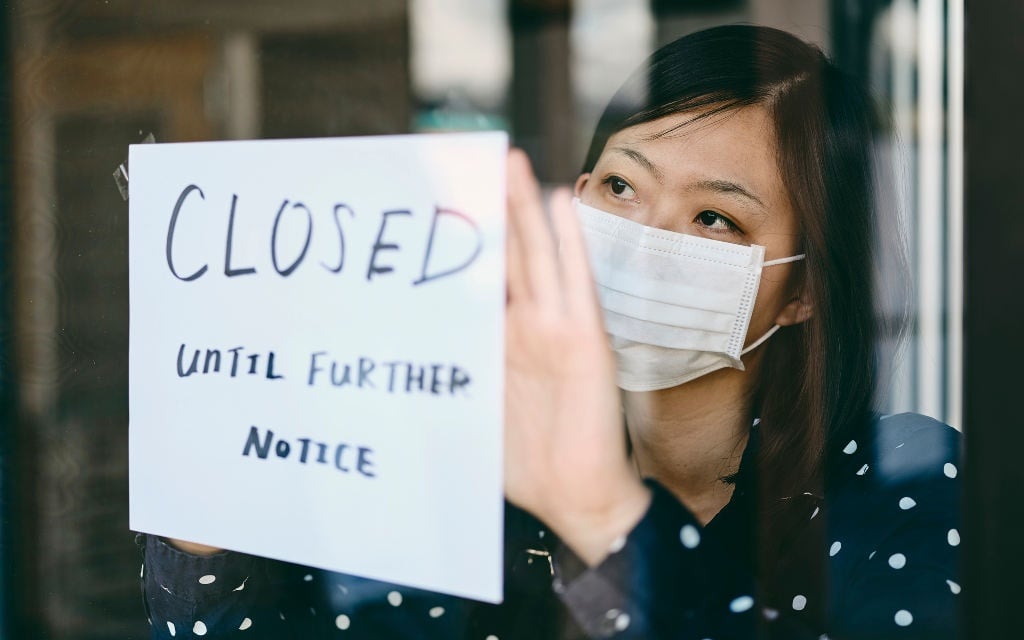


SA’s economy is expected to contract by between 7% and 10% in 2020.
- As SA completes the first 100 days of lockdown, some members of the struggling business community say SA cannot afford to keep the current restrictions in place.
- A smarter lockdown, which includes restricting certain activities while allowing all other industries to operate, is more desirable, say some economists.
- Record-high unemployment, the loss of all SA’s investor-grade credit ratings and a recession have only exacerbated the impact of the pandemic.
After the huge economic fallout from the first 100 days of South Africa’s lockdown, some members of the SA’s struggling business community say the country cannot afford to keep the current restrictions in place any longer.
South Africa’s GDP is already expected to shrink by between 7% and 10% this year, as the country faces its greatest economic contraction since the Great Depression of the 1930s. Record-high unemployment, the loss of all SA’s investor-grade credit ratings, and a recession that started in mid-2019 have only exacerbated the impact of the coronavirus pandemic and the nationwide lockdown meant to stem its growth.
“My own view is that we can’t really afford to have continued strict lockdowns. Instead what is required, rather than a general approach is we need to have a much more nuanced approach. We need to stop specific things. We can’t afford to stop economic activity anymore,” says Econometrix’s director and chief economist, Dr Azar Jammine.
Jammine says one of his worries is that the surge in new cases indicates that people are already not observing the lockdown. And if SA was to follow economies, like China, which had much longer lockdowns, an extension here may not serve the same purpose. Unlike in China, he says, in SA there is no authoritarian government that can compel the populace to follow its laws to the letter.
Business for South Africa (B4SA), the body coordinating the response to the virus by organised business, says SA needs to take additional steps to offset the job losses which had started before the lockdown and have now been exacerbated over the past three months.
The country’s jobless rate already rose to its worst level in a decade in the first quarter on the year, and is only expected do get worse. Treasury has projected between 690 000 and 1.8 million job losses as a result of the pandemic.
“Before Covid-19 arrived, the economy was already in crisis, characterised by declining investment ratings, low levels of investment, low levels of growth, an unsustainable fiscal situation, ballooning unemployment and increasing social instability. Covid-19 has amplified our dire situation even further,” B4SA said in an email.
- READ | SA business alliance expects 1 million job losses, economy to contract by 10%
B4SA was supportive of the measures the government took to slow the spread of the virus initially – but, by May, it had become more critical of the lockdown extension.
“The time for brave and decisive action is now and not next year. Tough choices must be made by all to create a sustainable future,” added B4SA in its response.
The situation is already too dire
Economic data on how the lockdown has affected the country so far is slowly trickling in. The monthly data readings that the country have been able to produce, despite the movement restrictions, show that the impact on the economy has been very severe – with just over 10% of businesses permanently closed by the end of May and another 20% temporarily closed.
The SA Reserve Bank now predict that SA’s GDP could shrink by 32.6% in the second quarter of 2020, and by 7.2% for the year as a whole. Investec, meanwhile, expects the economy to shrink by as much as -15%, a fall far more severe than the -1.5% experienced in 2009 in the aftermath of the global financial crisis
Industries like tourism and hospitality that were already bleeding jobs say they cannot endure a continuation of a strict lockdown for the next 100 days.
Tshifhiwa Tshivhengwa, CEO of the Tourism Business Council of South Africa, said the past 100 days may have been the worst the industry has had to endure, and the organisation could be headed to court to stop the continuation of that.
“If we are not considered [by the government] for reopening, we may have to consider our options and ways of forcing our government to open us up,” said Tshivhengwa.
- ALSO READ | There will be ‘nothing left’ of tourism industry if it can only reopen in December
We haven’t seen even the full impact of the first 100 days
Even sectors, supposedly less affected by the lockdown because they were allowed to return to operations sooner, are counting losses, evident by their decision to withhold dividends for the period ended on 31 March, said retail analyst Syd Vianello.
Vianello said company results for the year or six months ending in 30 June will provide a clearer picture of the impact of Covid-19.
“There are hints of the poor numbers that you can glean from the retailers not declaring dividends. They are not declaring dividends because they know what happened in April and May.
“Obviously, when they were reporting in June, they also had an idea of what was happening in June. And…they are dead scared of what’s coming in July,” Vianello said.
He said, past the 100-day mark, things will get more dire, especially with the uncertainty of job security, the end of the Unemployment Insurance Fund’s (UIF) Covid-19 Temporary Employer/Employee Relief Scheme (Ters) and the increase in Covid-19 numbers.

